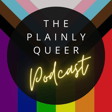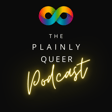
Leona O'Neill - Breaking: Trauma in the Newsroom
In this episode, I sit down with the accomplished Leona O'Neill, the head of journalism at Ulster University, to discuss her journey from growing up in Belfast to the co-editor and author of Breaking: Trauma in the Newsroom to her current role as a mentor to the next generation of journalists. Leona shares how witnessing the death of journalist Lyra McKee triggered a trauma response and how ultimately, this led to her personal experience of post-traumatic growth. We delve into her journey of healing, from the adrenaline of chasing stories to being stalked in a coffee shop, and how she found the strength to thrive and turn her experiences into an opportunity for growth. Join us for an inspiring conversation about trauma, resilience, and the power of storytelling.
You can find Leona on Twitter @LeonaONeill1 and on Facebook at https://www.facebook.com/leona.oneill.
Resources
Book
Breaking: Trauma in the Newsroom
https://www.amazon.co.uk/Breaking-Trauma-Newsroom-Chris-Lindsay/dp/1908518693/ref=sr_1_1?qid=1679691122&refinements=p_27%3ALeona+O%27Neill&s=books&sr=1-1&text=Leona+O%27Neill
Podcast:
ttps://open.spotify.com/show/57OcVIR937679O0tuYcnsa?si=ade5eee1007342a2
https://headlines-network.com/
Ted Talk
https://www.ted.com/tedx/events/49816


